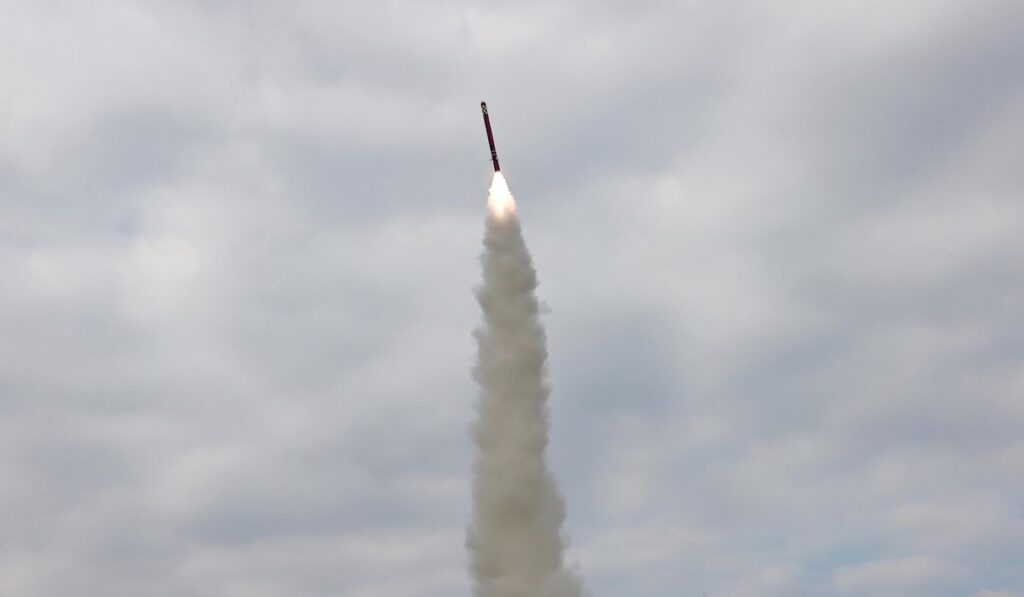North Korea announced it tested cruise missiles on Wednesday, a move timed to coincide with U.S. President Trump’s visit to the region and another sign of Pyongyang’s expanding strike capabilities. The launch underscores a growing challenge for America and its allies, and it highlights the need for clear, forceful policy that deters further escalation. This article breaks down what happened, why timing matters, and what a strong response looks like from a Republican perspective.
North Korea said Wednesday that it has conducted successful cruise missile tests, a claim that underlines how routine such demonstrations have become for the regime. The tests are described as a direct display of growing military capability, and they arrive while U.S. President Trump is in the region. That timing is not accidental and serves as a political signal from Pyongyang to the United States and its partners.
These launches are part of a steady pattern of weapons development that has accelerated in recent years, combining both missile tech and more conventional systems. Cruise missiles complicate defense planning because they can fly low, follow terrain, and be harder to detect until late in their flight. The technical progress worries military planners and makes deterrence more urgent.
From a Republican viewpoint, responds to such provocation should be unapologetic and clear: deterrence, strength, and readiness. Soft approaches and empty promises invite more testing and embolden adversaries, so the priority must be credible military posture backed by firm diplomacy. That means reinforcing alliances, improving missile defenses, and keeping the military edge needed to convince Pyongyang that aggression has real consequences.
President Trump’s presence in the region matters because it sends a signal that the United States is not disengaged and that American leadership is present at high levels. When a president visits, adversaries take note, and displays like this are often aimed at testing resolve. The proper response is measured but unmistakable, showing allies support without escalating into needless conflict.
Sanctions remain a key tool, and Republicans typically favor tightening economic pressure when diplomacy stalls. Effective sanctions require multilateral support and robust enforcement, and they should target the regime’s ability to fund weapons programs. At the same time, sanctions must be paired with solid defense measures so the cost of aggression is immediate and credible.
Missile defense and forward-deployed deterrence are practical necessities rather than political talking points. Investments in sensors, interceptors, and coordination with South Korea and Japan reduce risk and raise the price of provocation. A capable defense posture helps prevent miscalculation and protects civilians while diplomatic channels remain open.
Negotiations have their place, but history warns against talks that reward bad behavior without meaningful concessions. Republicans argue that talks must produce verifiable, irreversible actions that reduce the threat, not simply delay it. Until Kim Jong Un commits to concrete steps to dismantle weapons programs, engagement should be cautious and conditioned on results.
Domestic politics also play a role, since credibility on foreign policy hinges on policies that match rhetoric. Strong language about defending allies gains weight when it is backed by capability and follow-through. Voters expect leaders to protect the nation and its partners, and that requires a blend of diplomacy, economic pressure, and military readiness.
Intelligence collection and sharing are equally important for anticipating future tests and planning responses. The United States and its allies must keep improving their ability to track developments and warn partners in real time. Intelligence is the backbone of effective policy because it gives leaders options before a crisis becomes irreversible.
Regional partners will have to shoulder part of the burden, but American leadership remains central to any effective strategy. Republicans typically emphasize burden sharing while insisting the U.S. maintain decisive capabilities and political will. Allies want a partner they can count on, not one that wavers when pressure rises.
In short, North Korea’s cruise missile tests while President Trump visits underscore the strategic game at play and the need for a firm, clear response. The path forward combines deterrence, disciplined diplomacy, and sustained pressure designed to protect U.S. interests and regional security without falling into needless escalation.



